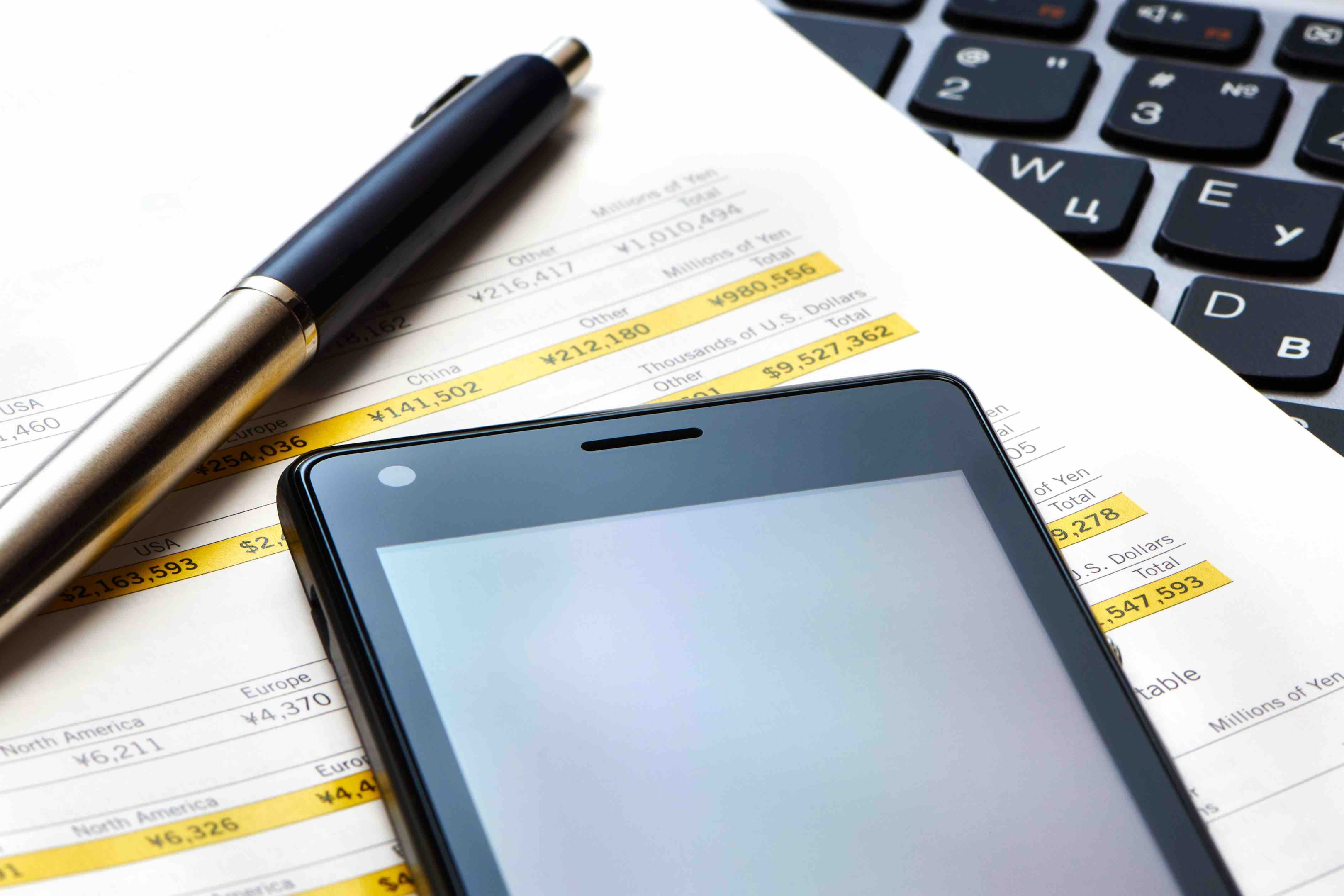
Owning rental property is a popular investment strategy, but many investors overlook a key tax benefit: rental property depreciation. As a rental property owner, understanding this tax deduction will help optimize your tax strategy and maximize your investment return. Are you ready to unlock significant tax savings and build a flourishing investment property portfolio? Let’s dive into the world of rental property depreciation and discover how to calculate depreciation on rental property, which can work wonders for your bottom line.
Key Takeaways
- Rental property depreciation is a tax deduction that helps to recover the costs of an investment over its useful life.
- Eligibility for depreciating rental properties requires ownership, income-generating purposes, and meeting IRS standards.
- Accurately reporting purchase price and closing costs can help maximize associated tax benefits while strategies such as 1031 exchanges reduce the impact of depreciation recapture taxes.
Suggested Posts:
Managing Rental Properties: A Comprehensive Guide for Landlords
Rental Property Loans: Navigating the Best Options in 2023
Understanding Rental Property Depreciation

Rental property depreciation is a tax deduction that allows property owners to recover the costs of their investment over its useful life. It’s a crucial tool for property owners that can result in substantial savings, especially for those looking to build an extensive investment property portfolio. By calculating depreciation, you are essentially spreading the cost of your rental property over its useful life, allowing you to offset rental income and reduce your taxable income.
Depreciation is not obligatory, but it can provide substantial tax benefits that many real estate investors often overlook. By depreciating your rental property, you can save hundreds of thousands of dollars over the life of the property. So, why not take advantage of real estate depreciation and make your investment work even harder for you as a real estate investor?
What is Depreciation?
Depreciation is a tax deduction that allows property owners to recover the costs of their investment over its useful life. It’s an essential tool for rental property owners, as it lets you offset your rental income, reduce your taxable income, and ultimately lower the amount of property taxes you have to pay.
The depreciation deduction can be applied to various items within your rental property, such as appliances, furniture, and even qualified closing costs. However, depreciation is not applicable to the land value, as the Internal Revenue Service (IRS) considers it to have an indefinite useful life.
Why Depreciate Rental Property?
Depreciating rental property offers several benefits.
- It reduces your taxable income
- It helps to offset maintenance costs
- It can be especially beneficial for property owners with multiple rental properties, as the depreciation deductions can add up to significant tax savings over time.
For example, let’s say you own a residential rental property with a purchase price of $250,000 and a useful life of 27.5 years. By calculating the annual depreciation amount, you can reduce your taxable rental income by $8,909 each year. Over the life of the property, this adds up to a substantial tax write off, putting more money back into your pocket and improving your overall return on investment.
Eligibility for Depreciating Rental Property
In order to claim depreciation on your rental property, you must meet certain criteria set by the IRS. First, the property must be used for income-generating purposes, such as long-term residential rentals or commercial spaces. Short-term accommodations, like hotels and motels, are not considered rental real estate for depreciation purposes.
To be eligible for depreciation, you must also be the owner of the rental property and use it to generate revenue. If you meet these requirements, then you can take advantage of rental property depreciation and enjoy the tax benefits it offers.
Types of Properties
Both residential and commercial properties are eligible for depreciation; however, the land value is excluded from the calculation. This means that when you calculate depreciation on a rental property, you will only focus on the building value and any eligible improvements made to the property.
It’s important to note that land is not considered depreciable because the IRS views it as having an indefinite useful life. Consequently, when determining the cost basis for your rental property, you should exclude the land value and only include the purchase price of the property and any eligible closing costs and improvements.
Ownership Requirements
To claim depreciation on your rental property, you must establish ownership of the property and use it for income-generating purposes. Additionally, the property must have a determinable useful life, as established by the IRS, typically 27.5 years for residential properties and 39 years for commercial properties.
By meeting these ownership requirements, you can take advantage of rental property depreciation, thereby reducing your taxable income and offsetting maintenance costs. This can be especially beneficial for those looking to build a sizable investment property portfolio and maximize their return on investment.
Calculating Depreciation on a Rental Property

Calculating depreciation on your rental property involves three key steps: determining the cost basis, establishing the useful life of the property, and selecting the appropriate depreciation method. By following these steps, you can accurately calculate the annual depreciation amount, which you can then claim as a tax deduction to reduce your taxable income.
Understanding how to calculate depreciation is crucial, as it allows you to take advantage of this valuable tax deduction and maximize your investment return. Let’s explore each step in more detail.
Determine Cost Basis
The first step in calculating depreciation on your rental property is to determine the cost basis, which includes the purchase price of the property, eligible closing costs, and any improvements made to the property. This will give you the total value of your rental property that can be depreciated over its useful life.
It’s important to note that land value is not included in the cost basis, as it is not considered depreciable. When determining the cost basis for your rental property, be sure to exclude the land value and only include the relevant costs associated with the property itself.
Useful Life of Property
Once you’ve determined the cost basis of your rental property, the next step is to establish its useful life, as determined by the IRS. For residential rental properties, the IRS sets a useful life of 27.5 years, while commercial properties have a useful life of 39 years.
These timeframes represent the period over which you can depreciate your rental property, ultimately allowing you to claim depreciation deductions and reduce your taxable income each year. By understanding the useful life of your property, you can accurately calculate the annual depreciation amount and take advantage of this valuable tax deduction.
Depreciation Methods
With the cost basis and useful life established, the final step in calculating depreciation is to select the appropriate depreciation method. The most common methods accepted by the IRS include the Modified Accelerated Cost Recovery System (MACRS) and the Alternative Depreciation System (ADS).
The MACRS method is typically used for residential rental properties, with a useful life of 27.5 years, while the ADS method can be employed for commercial properties with a useful life of 39 years.
By choosing the right depreciation method, you can accurately calculate your annual depreciation amount and claim this valuable tax deduction on your rental property.
Example:
Let’s say you purchased a residential rental property for $250,000, and the estimated useful life for this property, as per IRS guidelines, is 27.5 years.
Step 1: Determine Cost Basis
- Purchase Price: $250,000
Step 2: Establish Useful Life
- Useful Life: 27.5 years
Step 3: Select Depreciation Method
- We’ll use the Modified Accelerated Cost Recovery System (MACRS) method for residential properties.
Calculation: Annual Depreciation = Purchase Price / Useful Life Annual Depreciation = $250,000 / 27.5 Annual Depreciation = $9,090.91
So, the annual depreciation amount for your rental property is $9,090.91.
With this depreciation amount, you can now reduce your taxable rental income by $9,090.91 each year for 27.5 years, which will result in significant tax savings over the life of the property. Remember, this is just one example, and the actual depreciation amount may vary based on the property’s purchase price, useful life, and depreciation method used. Always consult with a tax professional for accurate calculations and advice.
Claiming Depreciation Deductions
Calculating depreciation on your rental property is the first step. Then, you can claim these deductions on your tax return. This will help you reduce your taxable income and take advantage of the tax benefits associated with rental property depreciation.
To claim depreciation deductions, you will need to provide the following information regarding the property:
- Purchase price
- Date of acquisition
- Estimated useful life
- Depreciation method utilized
By accurately reporting this information on your tax return, you can take advantage of the valuable tax deductions offered by rental property depreciation.
Required Tax Forms
In order to claim depreciation deductions on your rental property, you will need to file the appropriate tax forms with your personal or business tax return. These forms include Schedule E, which is used to report rental income and expenses, and Form 4562, which is used to claim depreciation deductions.
In some cases, you may also need to file Form 1040X for amended returns if you have previously filed a tax return without claiming depreciation deductions or if you need to make changes to your previously filed tax return.
By filing the required tax forms accurately and on time, you can ensure that you are taking full advantage of the tax benefits associated with rental property depreciation.
Tips for Accurate Reporting
To ensure accurate reporting of depreciation deductions on your rental property, it’s essential to consult with a tax professional and maintain accurate records of your property’s purchase price, closing costs, and any improvements made to the property. This will help you avoid any potential issues with the IRS and ensure that you are maximizing your tax savings.
By keeping detailed records and working with a tax professional, you can guarantee proper depreciation reporting and take full advantage of the tax benefits offered by rental property depreciation. This can ultimately lead to significant tax savings and an improved return on your investment.
Additional Depreciable Items
In addition to the rental property itself, there are other items within the property that can also be depreciated. These items include:
- Equipment
- Furniture
- Appliances
- Improvements
By claiming depreciation on these additional items, you can further reduce your taxable income and maximize your tax savings. Let’s explore some of these additional depreciable items and how they can impact your overall tax strategy.
Faster Depreciation Items
Certain items within your rental property, such as appliances and furniture, can be depreciated faster than the property’s useful life. These items typically qualify for accelerated depreciation, which allows you to claim a larger portion of the item’s cost as a tax deduction in the earlier years of its useful life.
By depreciating these items at a faster rate, you can further reduce your taxable income and maximize your tax savings. This can be especially beneficial for rental property owners looking to optimize their tax strategy and improve their overall investment return.
Claiming Depreciation on Improvements
Property improvements, such as renovations or additions, can also be depreciated over time. These improvements are typically depreciated over a 15-year period, allowing you to claim a portion of the improvement’s cost as a tax deduction each year.
By claiming depreciation on improvements, you can further reduce your taxable income and take advantage of the tax benefit offered by rental property depreciation. This can ultimately lead to significant tax savings and an improved return on your investment.
Depreciation Recapture and Tax Planning

When it comes time to sell your rental property, it’s essential to understand the concept of depreciation recapture and its tax implications. Depreciation recapture occurs when you sell a rental property at a gain, and the IRS taxes the previously claimed depreciation deductions at your ordinary income tax rate, with a maximum rate of 25%.
In this section, we’ll explore depreciation recapture in more detail and discuss strategies for minimizing its tax impact, helping you keep more of your hard-earned profits.
Understanding Depreciation Recapture
Depreciation recapture is a tax imposed on the sale of a rental property, whereby the tax is calculated based on the difference between the sale price and the depreciated value of the property. This means that when you sell your rental property, the IRS will tax the depreciation deductions you previously claimed at your ordinary income tax rate, up to a maximum rate of 25%.
Understanding depreciation recapture is crucial for rental property owners, as it can have a significant impact on your overall tax liability when selling your property. By planning for depreciation recapture and its tax implications, you can make informed decisions when it comes to selling your rental property and maximizing your investment return.
Strategies for Minimizing Tax Impact
There are several tax planning strategies that can help minimize the tax impact of depreciation recapture. One such strategy is to utilize a 1031 exchange, which allows you to defer the recapture tax by rolling the profits from the sale of one rental property directly into a new property through a designated third party.
Another strategy to minimize the tax impact of depreciation recapture is to offset the recapture tax with capital losses, which can help reduce your taxable income and lower your overall tax liability.
By employing these strategies and working with a tax professional, you can minimize the tax impact of depreciation recapture and keep more of your hard-earned profits.
Summary
Understanding rental property depreciation is essential for any real estate investor looking to maximize their investment return and take advantage of valuable tax deductions. By calculating depreciation and claiming it on your tax return, you can lower your taxable income, offset maintenance costs, and ultimately improve your bottom line.
As you navigate the world of rental property ownership, be sure to consult with a tax professional and stay informed about depreciation rules and strategies. By doing so, you can make the most of your investments and enjoy the financial rewards that come with a well-managed rental property portfolio.
Frequently Asked Questions
How to calculate straight line depreciation on a rental property?
To calculate straight-line depreciation on a rental property, divide the cost of the property by its tax life to find the annual depreciation amount. For example, $180,000 divided by 27.5 years yields an annual depreciation amount of $6,545.
How do you calculate depreciation on rental equipment?
To calculate depreciation on rental equipment, you must divide the cost basis by the useful life of the asset as specified by the IRS. This will give you an annual depreciation amount, which can then be applied to your return.
What is rental property depreciation?
Rental property depreciation is a tax deduction that enables owners to recoup their investment costs over the asset’s useful life.
This deduction can be a great way to reduce your taxable income and maximize your return on investment.
Can I claim depreciation on items other than the property itself, like appliances and furniture?
Yes, you can claim depreciation on items such as appliances, furniture, and qualified closing costs.
What is depreciation recapture and how does it affect my taxes?
Depreciation recapture is a tax imposed on the sale of a rental property, which taxes the previously claimed depreciation deductions at your ordinary income tax rate, with a maximum rate of 25%.
As a result, it affects your taxes by increasing them.
Tell us about your building
and our team will reach out with a quote.




